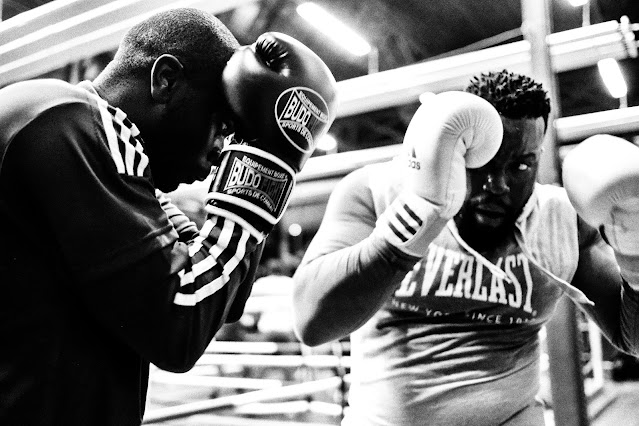Why Wear Weightlifting Gloves? Exploring the Pros and Cons
Weightlifting gloves have become a common accessory in the fitness world. These gloves are designed to provide support, protection, and enhanced grip during weightlifting exercises. However, opinions on their usefulness vary, and some individuals even look down upon their usage. In this blog post, we will delve into the pros and cons of weightlifting gloves, explore the reasons behind their perceived stigma, and discuss whether bodybuilders opt for gloves or prefer going bare-handed. Additionally, we will compare workout gloves and bare hands for bodylifting to help you make an informed decision. Let's dive in!
Weightlifting Gloves Pros and Cons
The Benefits of Weightlifting Gloves
Weightlifting gloves offer several advantages that make them appealing to many fitness enthusiasts. Here are some key benefits:
a) Enhanced Grip: Weightlifting gloves are designed with textured palms or specialized grip pads, which significantly improve your grip on the weights. This helps prevent slips and drops, reducing the risk of accidents and injuries.
b) Hand Protection: Lifting heavy weights can be tough on your hands, leading to calluses, blisters, and rough skin. Weightlifting gloves provide a protective barrier, reducing friction and minimizing the chances of developing painful skin issues.
c) Wrist Support: Many weightlifting gloves come with built-in wrist wraps or straps that offer additional support to your wrists. This can be particularly beneficial during exercises that put significant strain on the wrists, such as heavy bench presses or overhead presses.
d) Sweat Absorption: Sweaty palms can make it challenging to maintain a firm grip on weights. Weightlifting gloves are typically made from materials that absorb sweat, keeping your hands dry and preventing slippage.
e) Joint Stability: The compression provided by weightlifting gloves can help stabilize the joints in your hands and wrists, reducing the risk of strain or injury.
The Drawbacks of Weightlifting Gloves
While weightlifting gloves have their advantages, they may not be suitable for everyone. Here are some potential drawbacks to consider:
a) Decreased Sensation: Wearing gloves can reduce the direct contact between your hands and the weights, which may affect your ability to gauge the weight and control your movements effectively.
b) Reduced Grip Strength: Some argue that relying on weightlifting gloves for grip support can hinder the development of your grip strength over time. It is important to strike a balance between using gloves for safety and allowing your hands to naturally adapt to heavier loads.
c) Hygiene Concerns: Sweat absorbed by weightlifting gloves can create a breeding ground for bacteria and unpleasant odors. Regular cleaning and maintenance are essential to minimize these hygiene concerns.
d) Limited Wrist Mobility: Although wrist wraps or straps can provide support, they may restrict the natural range of motion in your wrists. This can be a concern for individuals who prioritize wrist flexibility in their training.
Why Are Weightlifting Gloves Looked Down Upon?
Weightlifting gloves have occasionally faced criticism and stigma within the fitness community. Some common reasons why lifting gloves are looked down upon include:
a) Stereotypes: Lifting gloves are sometimes associated with beginners or those who are not as serious about weightlifting. This perception may stem from the belief that gloves are unnecessary if you have developed sufficient hand and wrist strength.
b) Ego and Machismo: In some fitness circles, going bare-handed is considered a badge of honor, signifying toughness and superior strength. As a result, wearing gloves may be seen as a sign of weakness or an attempt to hide inadequacies.
Do Bodybuilders Wear Gloves?
Bodybuilders have varying preferences when it comes to wearing weightlifting gloves. While some bodybuilders choose to wear gloves for the added grip, protection, and wrist support they offer, others opt to train without gloves to develop their grip strength and maintain a direct connection with the weights. Ultimately, the choice depends on individual preferences, specific training goals, and personal comfort.
Workout Gloves vs. Bare Hands for Bodylifting
Deciding between workout gloves and going bare-handed is a matter of personal choice and specific requirements. Here's a quick comparison to help you make an informed decision:
a) Workout Gloves: These gloves provide added grip, hand protection, and wrist support. They are beneficial for individuals who prioritize safety and prefer a more secure grip during their workouts.
b) Bare Hands: Training without gloves allows for better tactile feedback, enabling you to feel the weights directly and develop greater grip strength. It is particularly advantageous for those focusing on functional strength or grip-specific exercises.
FAQs
Are weightlifting gloves necessary?
No, weightlifting gloves are not necessary for everyone. Whether to wear gloves or not depends on individual preferences, comfort, and specific training needs.
Should you wear gloves when Deadlifting?
Wearing gloves during deadlifts is a personal choice. Some individuals prefer the added grip and hand protection, while others prefer going bare-handed to develop grip strength and maintain direct contact with the barbell.
Do lifting gloves prevent calluses?
Lifting gloves can help reduce the formation of calluses by providing a protective barrier between your hands and the weights. However, the effectiveness may vary depending on the quality and fit of the gloves.
Why are weightlifting gloves fingerless?
Weightlifting gloves are often designed with fingerless options to allow for better grip and tactile feedback. This design enables users to have a secure grip on the weights while maintaining a sense of touch and dexterity in their fingers.
Conclusion
Weightlifting gloves offer various advantages, such as improved grip, hand protection, and wrist support. However, they also have drawbacks, including decreased sensation and potential limitations on wrist mobility. Whether to wear weightlifting gloves or not ultimately depends on personal preferences, goals, and individual training needs.


.jpg)
.jpg)
Comments
Post a Comment